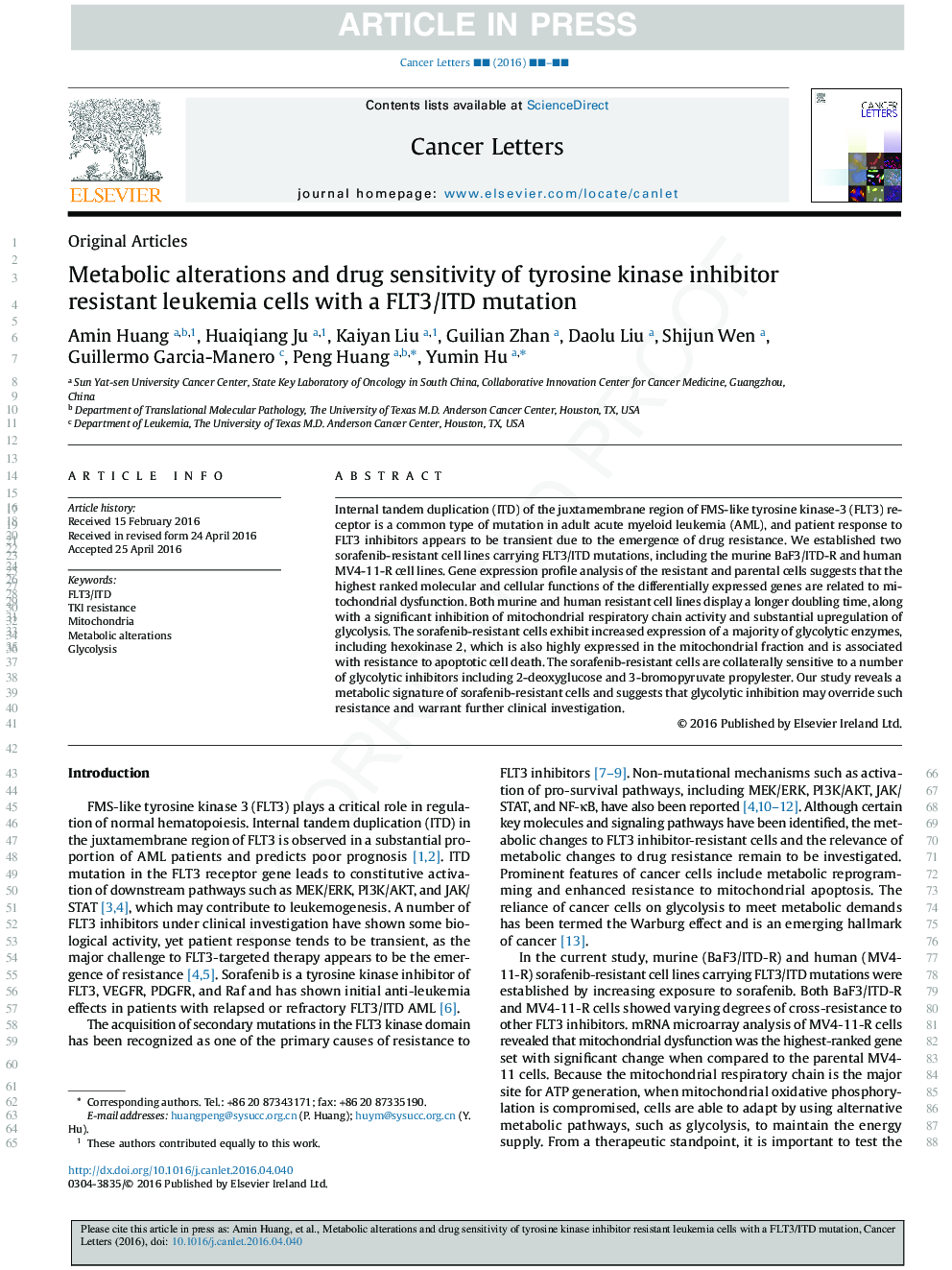| Article ID | Journal | Published Year | Pages | File Type |
|---|---|---|---|---|
| 10899298 | Cancer Letters | 2016 | 9 Pages |
Abstract
Internal tandem duplication (ITD) of the juxtamembrane region of FMS-like tyrosine kinase-3 (FLT3) receptor is a common type of mutation in adult acute myeloid leukemia (AML), and patient response to FLT3 inhibitors appears to be transient due to the emergence of drug resistance. We established two sorafenib-resistant cell lines carrying FLT3/ITD mutations, including the murine BaF3/ITD-R and human MV4-11-R cell lines. Gene expression profile analysis of the resistant and parental cells suggests that the highest ranked molecular and cellular functions of the differentially expressed genes are related to mitochondrial dysfunction. Both murine and human resistant cell lines display a longer doubling time, along with a significant inhibition of mitochondrial respiratory chain activity and substantial upregulation of glycolysis. The sorafenib-resistant cells exhibit increased expression of a majority of glycolytic enzymes, including hexokinase 2, which is also highly expressed in the mitochondrial fraction and is associated with resistance to apoptotic cell death. The sorafenib-resistant cells are collaterally sensitive to a number of glycolytic inhibitors including 2-deoxyglucose and 3-bromopyruvate propylester. Our study reveals a metabolic signature of sorafenib-resistant cells and suggests that glycolytic inhibition may override such resistance and warrant further clinical investigation.
Related Topics
Life Sciences
Biochemistry, Genetics and Molecular Biology
Cancer Research
Authors
Amin Huang, Huai-Qiang Ju, Kaiyan Liu, Guilian Zhan, Daolu Liu, Shijun Wen, Guillermo Garcia-Manero, Peng Huang, Yumin Hu,
